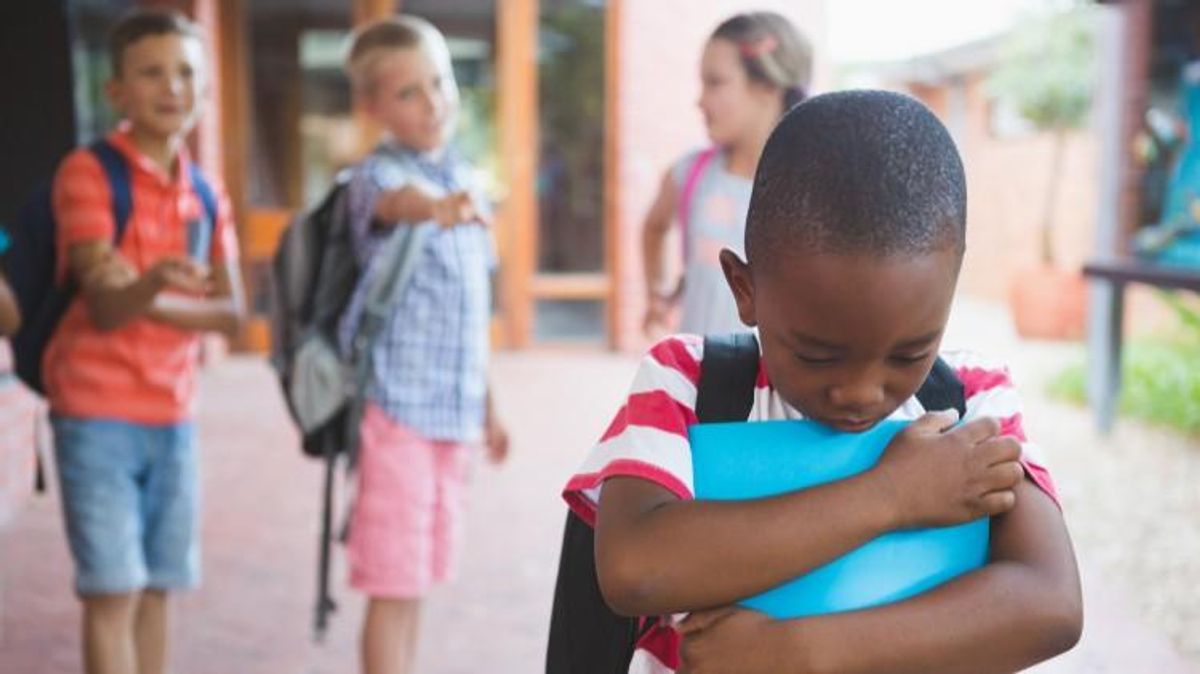All Rights reserved
By continuing to use our site, you agree to our Private Policy and Terms of Use.
Anti-LGBTQ+ harassment and bullying remain common in U.S. schools, and some experiences of harassment, such as hearing slurs, are near-universal, according to a new report from GLSEN, the nation's leading organization dealing with LGBTQ+ issues in education.
GLSEN's 2019 National School Climate Survey, released this month, found that 98.8 percent of LGBTQ+ students have heard "gay" used as an insult in school, 96.9 percent have heard the phrase "no homo" at school, and 95 percent heard other negative remarks, such as antigay slurs. The expression "that's so gay" is the one most commonly heard, and its prevalence increased from 2015 to 2019. The use of "no homo" increased between 2017 and 2019, after having declined for several years.
Fifty-nine percent of LGBTQ+ students reported feeling unsafe overall in their school because of their orientation and 37 percent because of their gender. Forty-two percent felt uncomfortable because of their gender expression. Around 45 percent and 44 percent and of respondents, respectively, avoided gender-segregated bathrooms and locker rooms at school, and 28 percent reported that their schools had policies preventing them from using the correct bathroom. In total, 59 percent of students reported that they've experienced anti-LGBTQ+ discriminatory policies at their schools.
In some of the most disturbing news, almost 69 percent of students said they have been verbally harassed at school and a quarter have been physically harassed. Eleven percent have been assaulted at school because of their gender or orientation. Nearly a third of LGBTQ+ students said they have even skipped an entire day of school in the previous month because they feared for their safety.
There is some good news. More than 60 percent of schools now have a gay-straight alliance (sometimes called gender and sexuality alliance) or similar club, and nearly all students (97 percent) could point to at least one supportive teacher at their school. Students whose schools had a GSA reported lower rates of bullying and harassment than students who don't have access to such clubs.
GLSEN has conducted the survey every two years since 1999. The school climate for LGBTQ+ students overall has improved since then, but school remains a hostile place for many of these students, according to the organization. The 2019 survey showed more positive change than the 2017 one but not as much as previous years.
"For two decades, the National School Climate Survey has been a powerful tool for change. When GLSEN launched the survey in 1999, no research existed that examined the experiences of LGBTQ students across schools nationwide," GLSEN Executive Director Eliza Byard said in a press release. "This biennial survey has provided educators, policymakers, LGBTQ students and advocates with the data and research needed to create safe and inclusive schools for LGBTQ students. We've seen significant improvement in the lives of LGBTQ students over the past twenty years, but progress has slowed. This year's report offers a clear blueprint for how schools can step up to help LGBTQ students reach their full potential."
"Our research over the past two decades points to clear actions that schools can take to protect students who are facing anti-LGBTQ harassment and other forms of discrimination," added Joseph Kosciw, director of the GLSEN Research Institute. "It's time for each and every school leader to understand the barriers that LGBTQ students face and to commit to making the changes necessary to protect all students, regardless of their sexual orientation, gender identity or gender expression."
Another recent study, by the American Journal of Preventive Medicine, found that 91 percent of LGBTQ+ students have been bullied, and that 73 percent of them have experienced bullying for reasons that have nothing to do with sexuality or gender, like weight, ethnicity, and religion.
Bullying and harassment lead directly to lower grades and less participation in school as well as mental health problems. Students who reported being bullied were nearly twice as likely to say they do not plan to pursue post-secondary education.
The Trevor Project provides a number of resources for LGBTQ+ young people who need to talk, including its 24/7 TrevorLifeline (866-488-7386), TrevorChat, and TrevorText programs.Learn more at TheTrevorProject.org.
Want more breaking equality news & trending entertainment stories?
Check out our NEW 24/7 streaming service: the Advocate Channel!
Download the Advocate Channel App for your mobile phone and your favorite streaming device!
From our Sponsors
Most Popular
Here Are Our 2024 Election Predictions. Will They Come True?
Meet all 37 of the queer women in this season's WNBA
17 Celebs Who Are Out & Proud of Their Trans & Nonbinary Kids
Here Are the 15 Most LGBTQ-Friendly Cities in the U.S.
Which State Is the Queerest? These Are the States With the Most LGBTQ+ People
These 27 Senate Hearing Room Gay Sex Jokes Are Truly Exquisite
10 Cheeky and Homoerotic Photos From Bob Mizer's Nude Films
42 Flaming Hot Photos From 2024's Australian Firefighters Calendar
These Are the 5 States With the Smallest Percentage of LGBTQ+ People
Here are the 15 gayest travel destinations in the world: report
Trending stories from our video partner Advocate Channel.
For more videos and shows go to advocatechannel.com.

















































































